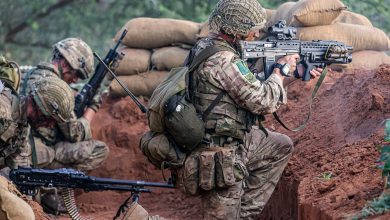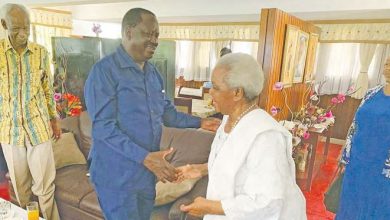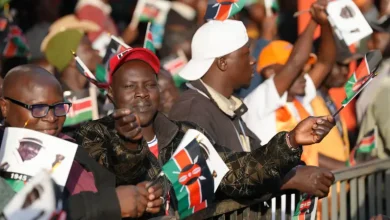Violence leaves 739 civilians dead in South Sudan

JUBA: AT least 739 civilians were killed in South Sudan between January and March 2025, according to a report released Wednesday by the United Nations.
A human rights report published by the United Nations Mission in South Sudan (UNMISS) on Wednesday documented the killing of 739 civilians and 679 injuries in the last three months.
According to the report, the majority of these attacks were carried out by community based militias and local armed groups.
However, the number of civilians harmed by organized armed groups and military actors is also rising.
The report claimed that 149 women and children were abducted and 40 subjected to conflict-related sexual violence (CRSV) between January and March 2025.
A Human Rights Quarterly Brief shows that more than 1,600 people were either killed, injured, abducted, or sexually assaulted this year, making it the worst three-month period since 2020.
Compared to the last quarter of 2024, this marks a sharp increase, nearly double the number of deaths, and almost twice as many people injured.
Abductions and cases of sexual violence also rose slightly. Warrap State was the worst affected, with more than 420 deaths and almost 300 injuries.
In Central Equatoria, the number of victims more than tripled, with a rise in abductions reported. Children and women continue to suffer the most.
The number of child victims rose by 50 percent, and women and girls made up the vast majority of those subjected to sexual and gender-based violence. Guang Cong, Deputy Special Representative of the Secretary-General of the UNMISS, called on the government to protect civilians.
ALSO READ: 13 dead as navy boat, passenger ferry collide in Mumbai
“It is the primary responsibility of the government to protect civilians and prevent conflicts, which continue to cause immense harm to communities across the country,” said Guang.
“Together with regional and international partners, UNMISS calls for concerted, collective efforts at the national, state, and local levels to address the underlying causes and drivers, facilitate the resolution of grievances through dialogue, and hold perpetrators accountable in order to end the deadly cycle of violence.”
Meanwhile, recent attacks on girls and young women in South Sudan illustrate how they are at risk and lack adequate protections.
On June 25, armed men in Pochalla North, Jonglei state, reportedly abducted four female students as they travelled to sit for secondary school exams.
Though the local community organized search efforts, the four remain missing. In late June, the police said they had arrested seven suspects in the gang-rape of a 16-yearold girl in South Sudan’s capital, Juba. An alleged video of the attack spread online and generated public outrage.
Following the incident, the country’s gender minister called for thorough investigations and accountability.
Activists called for legal reforms and organized forums to encourage survivors to speak out. But even when cases garner such levels of public scrutiny, convictions are rare.
In May, armed youth surrounded a girls’ boarding school in Marial Lou, Warrap state, trapping at least 100 students inside.
According to the United Nations peacekeeping mission, teachers locked the gates until peacekeepers secured the school and negotiated an end to the siege.
These incidents are part of an all-too-familiar story in South Sudan where a girl’s body, her education, and her future are under constant threat.
Generations of conflict, widespread access to arms, and patriarchal customs including bride price have long turned women’s and girls’ bodies into battlegrounds, used as spoils of war or bargaining chips in intercommunal disputes.
Watching communities mobilize to protect girls brings hope that such behavior and practices may change, but meaningful protection still depends on the state fulfilling its legal obligations.
A party to the Convention on Elimination of All Forms of Discrimination Against Women, South Sudan has also ratified the UN Convention on the Rights of the Child and endorsed the Safe Schools Declaration, committing to protect women, girls, students, and schools from attack.
The Ministry of Gender, Child and Social Welfare and the Ministry of Justice have promoted the Anti-Gender Based Violence and Child Protection Bill, which could strengthen legal protections, criminalize forced and child marriage, and guarantee survivors free medical and psychosocial support.
Parliament should prioritize the bill’s adoption.
The government should also strengthen the country’s rule-of-law institutions and ensure accountability for perpetrators.
Protecting schools from attacks—including by enhancing security presence, youth focused dialogues, and rights-respecting disarmament processes—is critical.
Girls in South Sudan should be able to walk to school and learn without fear, and authorities should act to ensure these basic rights.





